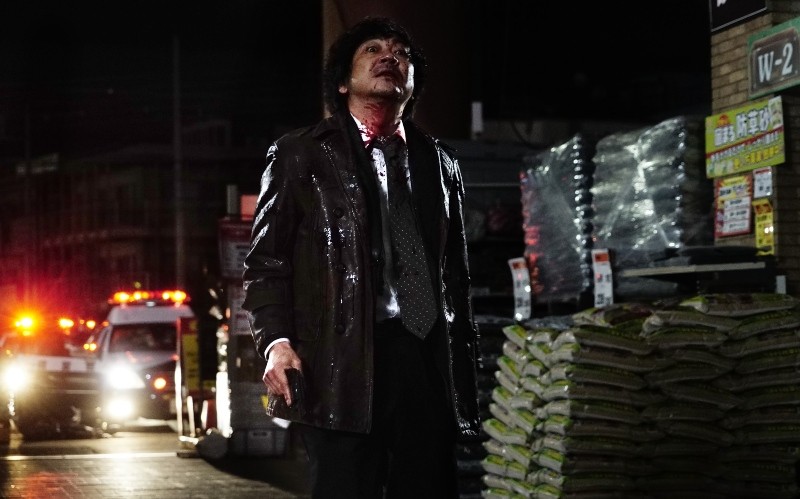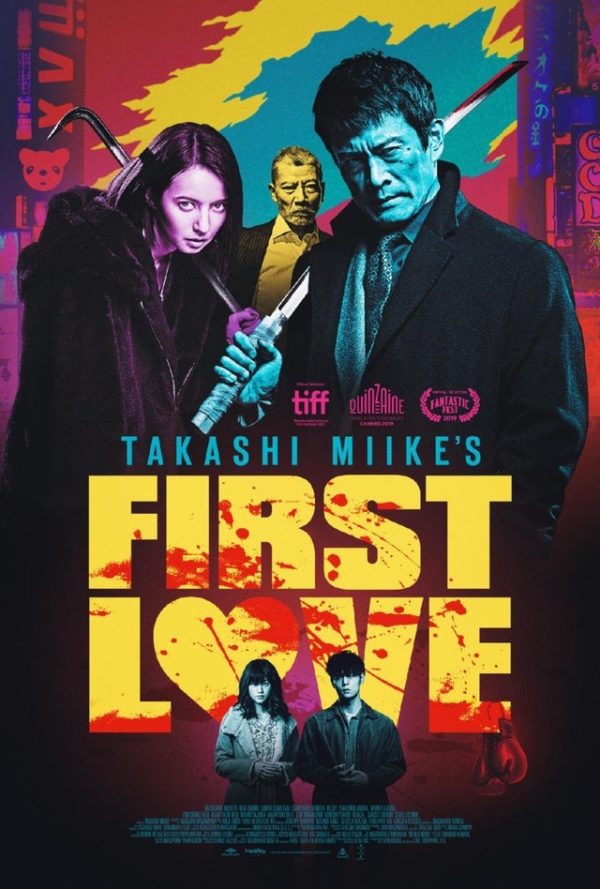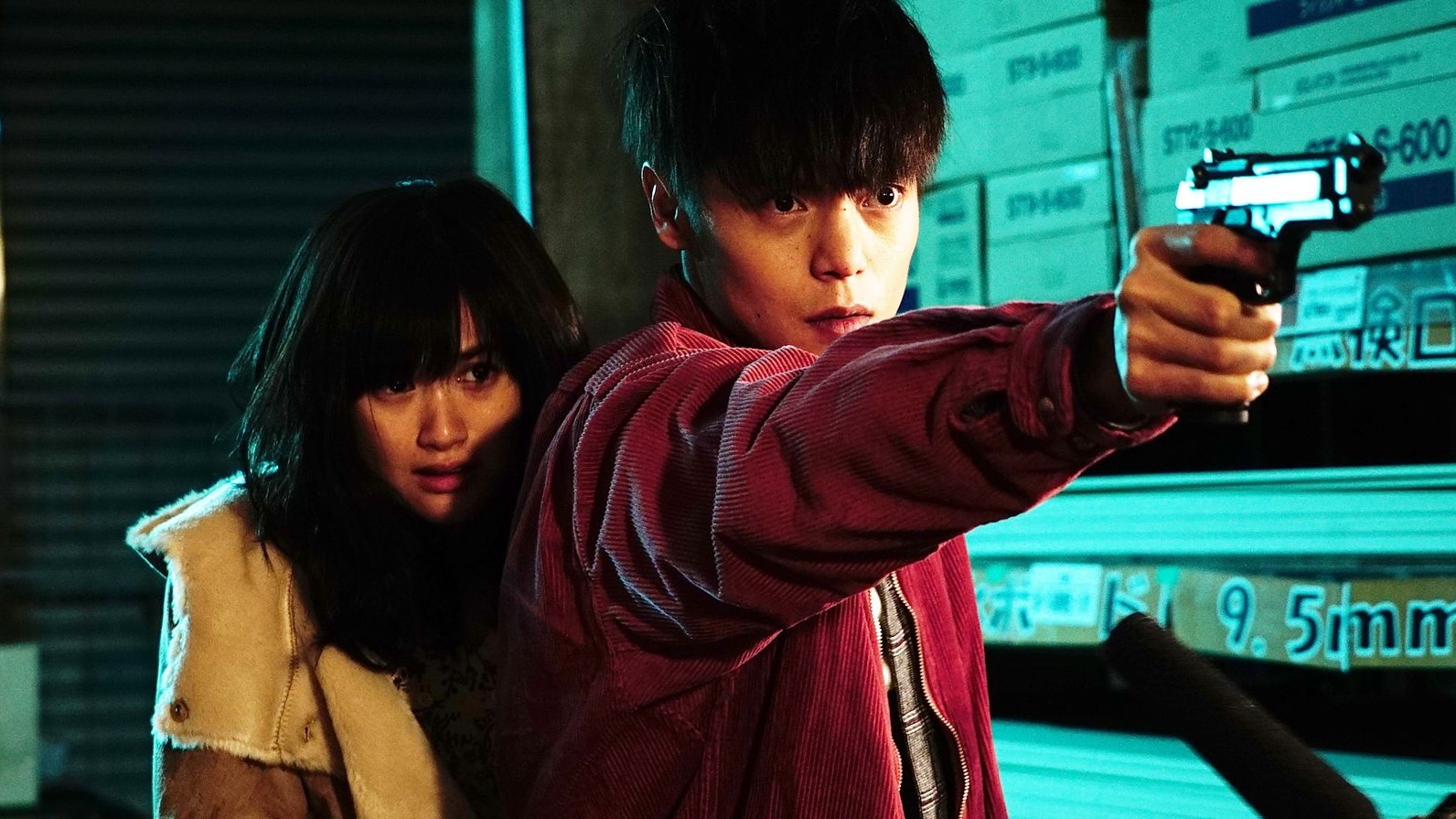
Takashi Miike’s output is so expansive that I am in no ways caught up with his recent films; in fact, I reckon the last one I might have seen was about nine years ago. Now with over one hundred credits to his name, you could essentially get a part-time job for a few months just to play catch up; that said, if you’ve seen even a few of his, then you know that a few themes are pretty likely. Yakuza, gangs who are not Yakuza, rites of passage, bent cops, ultraviolence…they’re not always there, but they’re often enough there. First Love (2019) is furthermore described in its press materials as ‘Tarantino-esque’; whatever you think of Tarantino as a man, it’s probably fair that he’s become eponymous at this point, but to what extent is First Love reminiscent of Tarantino?
Well, obvious links to True Romance aside, there’s some Venn-diagram style overlap between the two directors, perhaps especially given that each is a fan of the other’s work. First Love has that emphasis on the interplay between gangland and normal folks; there’s some of the same kind of black comedy in there, and visually this Takashi Miike film is a lot more muted -almost Tarantino-retro in aspect – compared to many of his better-known projects. But they’re not identical; I seriously doubt that Tarantino would ever feature a ghost in underpants…
We are introduced to an array of characters; of chief interest there’s Leo, a boxer, whose slowly-rising career is scuppered when he discovers he has a brain tumour; there’s Kasu, a local Yakuza who’s sick of the Chinese muscling in on the local drug trade, wanting instead to steal a large amount of the supply before making himself scarce; there’s also ‘Monica’, a drug addict whose father (actually, he of the underpants and added spectrality) sold her into prostitution over debts. A great deal of time is taken over it, but essentially the collision course between these people – and their surrounding people, given the gang elements – seems set, as both Leo and Monica end up in the frame when double deals start to go badly wrong. ‘Wrong place, wrong time’ impacts rather heavily on them.

For all the promise of violence and the presence of regular topics, though, First Love spends the greater amount of its running time being quite subtle; I’d go so far as to say slow, and moments of violence which occur during the first two thirds (or so) are not front and centre the way they typically are, or perhaps, were. Even an early decapitation takes place quietly off-screen. Things do of course heat up as various gangs and interests clash in the final act, and gangster moll Julie (Becky) is an enjoyable, grunting, yelling, violent foil to all of the more understated content. Then again, there are issues in moving from a slower, often subdued film into the ever-anticipated grisly sequence; how well that works, or feels like some kind of genre obligation, is down to the viewer. Perhaps expectation is this film’s greatest enemy.
Another issue here would seem to be the ‘star-crossed lovers’ motif which, despite the film’s 108 minutes, feels rather thin and underdeveloped. The cast isn’t at issue; although Monica/Yuri is played by a new actress (Sakurako Konishi), Leo (Masataka Kubota) has some serious Takashi pedigree, and more could have been made of their time together. There was no sense of overarching sympathy or investment in them; I wonder if there were simply too many characters in this film altogether.
For all that, First Love isn’t a bad film, in many respects. It has a good cast, it’s well shot, lit and scored, and it’s all competent enough with a number of enjoyable scenes and developments. It simply lacks the spark to be memorable, a film of disparate parts which trundles through its subject matter without any real verve. It’s a shame, but then if you make as many damn films as Takashi Miike, can they all be great?
First Love (2019) was released by Signature Entertainment on 14th February 2020.
